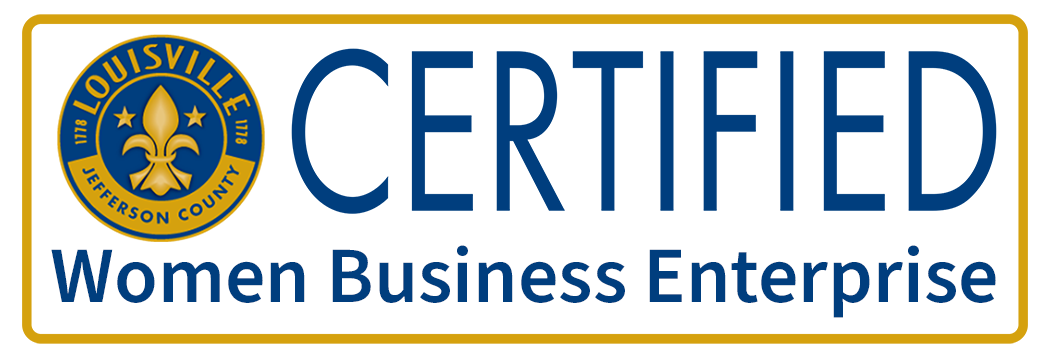We serve a variety of businesses with our corporate security solutions here at Warren Technology, and in many different capacities, too.
Sometimes, when business owners choose to reach out to us because they want to improve their network security, they can be unsure just what type of security solution is the right one for them.
Many factors go into determining what “level” of network security is appropriate for your business. This includes budget, the size and technological skills of your team, the industry you are in, and the data that your daily operations generates.
Thinking about these aspects of your business can answer why you would choose a stronger security option over, say, a low-protection security solution. We will cover the biggest reasons for choosing among levels of network security.
Lower-Level Network Security
Many businesses outright assume that the maximum-protection network security option is automatically the best because, well, it is maximum-protection. However, this is not always the case, and can end up costing businesses a lot more than they ought to spend.
The arguments for going with a lower security option rest on certain aspects of your operations.
If you own a small business, then going with a lower-level network security option makes the most sense.
For one, you will be much less of a target for criminal hackers, who typically set their sights on big fish like Yahoo or LinkedIn. This is because bigger companies tend to have more ransom money, which is often what criminal hackers are looking for.
Of course, other cybersecurity threats still exist for small businesses, which is what this level of network security will cover. This can include phishing, a form of fraud that involves posing as a reputable person or entity for the purpose of unlawfully gaining information from Internet users such as your employees.
In these cases, criminals are not always looking to steal information to get you to pay a bountiful ransom—though you cannot entirely rule that out, either—, but to perhaps get a hold of a credit card number to make some purchases, or to get ahold of private information that can be sold for digital currencies like Bitcoin on the dark web.
This security option also protects against malware, which “infects” your computers with a virus that may block your access to essential functions or information until you pay a ransom to “unlock” them again (known as ransomware), or simply track the activity on your computers to see you enter any essential information (this is known as spyware.)
Another thing to consider is the type of data you handle, and whether you operate in a non-regulated industry (this applies to many businesses in arts and entertainment.) If you are not generating data such as customer credit card numbers, then you can get by with just a firewall we will configure for your business along with proper antivirus software.
High-Level Network Security
This is where things tend to get more advanced. If you are a mid-sized company or bigger, or just employ a lot of employees who have, say, company email addresses, then you should certainly consider a high-protection option.
While the biggest threat to small businesses is often targeted attacks, where a criminal hacker knowingly tries to take advantage of a particular business, bigger companies also have to deal with untargeted attacks.
Untargeted attacks involve criminal hackers sending out malware to just about anywhere where valuable information, such as employees’ passwords that will in turn lead to access to more valuable information, may be found.
Spam, mass email, spoofing, and the like are all common threats to midsized companies, which is why this level of protection involves greater email security measures. Spam filters and malware-scanning implementations can help keep your employees away from any potentially dangerous links or seemingly-trustworthy emails.
IDS (intrusion detection software) and IPS (intrusion prevention software) will also be added here, for the purpose of seeing any particularly suspicious behavior, such as log-ins of your company accounts from unfamiliar devices or unusual locations.
Network isolation, or segmentation, is also a big part of this security upgrade. This makes for a much more customizable division of your computer network, where certain areas of your network, such as customer records, can be much more easily protected, with restricted access for internal sources, such as employees not authorized to access customer information like credit card numbers.
This goes along with the usual protection from external sources. Going off the above mentioned example of customer records, if one of your employees’ accounts gets hacked, the hacker still cannot access the precious data heap of credit card numbers, because network segmentation ensured that it would be off-limits even for plenty of internal employees.
This will also involve an increased level of monitoring from our team, who can also cooperate with your existing IT department, if you have one.
Maximum-Protection Security
If you read the previous sections about the two other levels and still feel like you would need a stronger security option, then we can certainly accommodate your needs.
If you are a big enterprise company, or are in a regulated industry where there is pretty much a constant stream of valuable data, such as healthcare or banking, then you will certainly have a cyber-target on your back that criminal hackers will be aiming at.
You can likely expect to be up against not only highly-skilled individual hackers, but groups of hackers as well, who often band together to create large-scale shutdowns that can net them hundreds of thousands, even millions, in ransom earnings.
It is not only the value of your data, but the amount of it, that makes you more susceptible to protect. Think of it this way: If you owned a small store where all of your items were in plain sight, then you would think much less of shoplifters than if you operated a large superstore, where customers can disappear down any aisle and steal whatever they want. Here, security information and event management (SIEM) is a major feature of this level, where every data “event” within your network is logged and tracked, so, if there is an attack, you can see just what happened. Also, if any suspicious activity does occur, SIEM allows your IT managers, which could be Warren Technology or us in collaboration with an existing IT department, can take care of the issue in real time, minimizing loss.
To further protect against data loss, we can provide data loss prevention (DLP) solutions, where your data will be completely guarded internally, so that only certain types of data will be allowed to leave the network, either in the form of being accessed by an external agent or being sent out by an internal agent.
We also understand that the days of company computers are waning, and that it is often the case, especially in the remote-work era, that people will use their own personal devices to access your company data, even when in the office. For that reason, we put a lot of importance on endpoint security, which monitors the activity of all of the devices, company-owned or personal, involved in your company network. This way, we can more readily detect security issues as soon as they occur.
Upgrade Your Security Solutions with Warren Technology
If you are interested in stepping up your business’ network security, whether you are a small local business or a sizable enterprise corporation, then do not hesitate to reach out to Warren Technology today.







